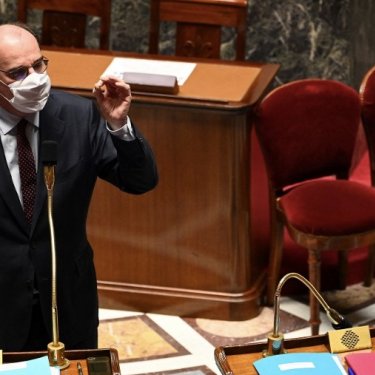RSF urges French premier to refer “global security” bill’s article 24 to constitutional council

Reporters Without Borders (RSF) calls on France’s prime minister to keep his promise to refer a controversial article in his government’s “global security” bill to the constitutional council following the bill’s definitive approval by both parliamentary chambers. Article 24 on “causing the identification” of police officers poses a major threat to press freedom, RSF says.
Despite many warnings by RSF and other journalists’ organisations, the National Assembly today approved a version of the bill that was previously agreed by a joint commission on which senators and deputies are equally represented. As the Senate already approved this version on 7 April, its adoption is now definitive and only the constitutional council could now strike down the controversial article.
“Despite our repeated warnings, the deputies and senators unfortunately did not seize the opportunity to stop the infernal machine of the global security bill’s article 24,” RSF secretary-general Christophe Deloire said. “We therefore urge Prime Minister Jean Castex to keep his promise to refer article 24 to the constitutional council. If the constitutional council does not intercede, press freedom legislation in France will deteriorate.”
On 24 November, the prime minister denied any intention of endangering press freedom in the global security bill and promised to submit it himself to the constitutional council.
Although article 24 has undergone major changes in the course of its passage through parliament, it continues to pose a danger to journalists covering police operations. The version that was finally adopted today* creates the new crime of “causing the identification” of police officers or gendarmes with an intent to harm.
As RSF noted after this final version of article 24 was approved by the Senate’s law commission, the new crime of “causing the identification” is not defined. Its wording does not spell out what constitutes the offence (disseminating photos or videos, or inciting identification) and maintains the vague and dangerous concept of harm to “psychological integrity” previously criticized by RSF.
The new crime of “causing the identification” of police officers or gendarmes with an intent to harm replaces the ban on the dissemination of photos and videos of police officers or gendarmes with an intent to harm that was in the first version of article 24.
The new version is even more dangerous inasmuch as, instead of being incorporated into the 1881 law on press freedom, it is being added to the penal code, which does not provide journalists with the same procedural guarantees and exposes them to summary trial by courts that are not specialised in media law.
As RSF requested, these guarantees are however being applied to article 18 of the bill on “consolidating respect for the Republic’s principles” (also known as the “anti-separatism” bill), which aims to protect all citizens, including police officers and other state employees, against the dissemination of personal and professional information. The existence of two similar article in different laws is incongruous and quite possibly problematic.
France is ranked 34th out of 180 countries in RSF's World Press Freedom Index.
* Article 24 of the definitively adopted version of the “global security bill” says: “Causing, with the manifest aim of harming their physical or psychological integrity, the identification of an officer of the national police, a member of the national gendarmerie or an officer of the municipal police when they are taking part in a police operation (...) is punishable by five years in prison and a fine of 75,000 euros.”
** Article 18 of the bill on consolidating respect for the Republic’s principles, as approved by the Senate, says: “Revealing, disseminating or transmitting, by any means whatsoever, information relating to the private, family or professional life of a person allowing them to be identified or located, with the aim of exposing them or members of their family to a direct risk of harm to themselves or their property, a risk of which the perpetrator could not be unaware, is punishable by three years in prison and fine of 45,000 euros.”



